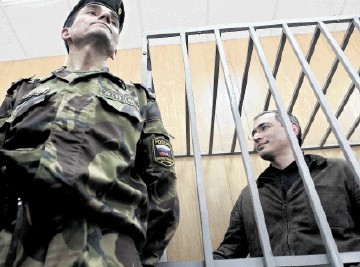
I am writing this from Moscow where I have been spending quite a bit of time recently for a variety of reasons – football, Harris Tweed, energy. My enthusiasms are nothing if not eclectic.
Whichever business one is involved in, there is a very good rule to follow. Work on the assumption that however things appear, you know very little of what is going on below the surface. If you don’t speak the language, then multiply that rule several times over.
I suspect that BP would, in the light of experience, tend to endorse that view. Its partnership with a group of Russian oligarchs known as AAR, through the vehicle TNK-BP, has made both sides a load a money but has also been fraught with sub-plots and subterfuges.
Now the most likely outcome seems to be that BP will form a more stable partnership with Rosneft, the Russian state oil company that has been steadily clawing back the country’s reserves since Vladimir Putin first came to presidential office in 2000
That in itself would be quite a turn-around. I remember, maybe a decade ago, meeting a very senior BP man in Moscow who was bemoaning head office’s failure to understand the problems they were facing.
“It’s all very well for them to say we’ve got to hang in here,” he wailed. “But their offices aren’t being raided at 5 o’clock every Friday evening.”
The eventual shape of BP’s presence and partnerships in Russia remains to be determined. However, the message from head office is the same as before – the guys have got hang in here because the prize is so great. And, having gained an early foothold, it would not be wise to surrender it.
Under Putin’s political direction, Rosneft is rapidly becoming one of the world’s largest oil giants.
It was formed from the fragments of the Soviet oil industry that were left in state hands after the scandalous privatisation spree of the 1990s which created the oligarchs and robbed the Russian people.
Then, under Putin, the fightback began. Rosneft again became the country’s largest oil company by taking over the fields that had gone to Mikhail Khodorovsky, currently languishing in the Russian equivalent of Her Majesty’s pleasure.
Former state assets have continued to be drawn back into public ownership while the oligarchs have dispersed around the world, buying super-yachts and football clubs.
But for those who can find a way of working with the state sector, the prize is still enormous. And that is why BP will do whatever deal is necessary in order to retain their presence in Russia.
Oil production last year reached its highest level in the post-Soviet period, at 511million tonnes. And the plan is to keep on raising output until 2020.
Beyond that remain vast reserves that have scarcely yet been tapped. In regions like Kranodar, Irkutsk, Yakutia, Yamalo-Nenetsky, the infrastructure is weak and the conditions extremely harsh. Massive investment will be required to access and support that expansion – and not even Rosneft can do that alone.
Yet I often refer back to a visit that I made a few years back to Khanty-Mansisk, the epi-centre of the Russian oil industry in Siberia – a truly extraordinary place and the only oil capital in the world where there was not an American within 1,000 miles.
There was huge pride there in the fact that the Soviet Union had developed its own oil industry without help from anyone else. The implied message was that Russia could continue to do so if it so chose – and in the view of the people I met, that was exactly what should have happened.
Another recollection of that visit was their frank admission that they really did not have a clue what was out there – the region was so vast and the natural resources so plentiful that nobody could make any meaningful estimate of their scale and extent.
Now that the Russian state is largely back in control of these resources, it will set its own terms and conditions, and quite right too. But BP and others might well conclude that working with the Russian state is a relatively peaceful and stable prospect compared to life with the oligarchs.
Though they will still never know exactly what is going on.